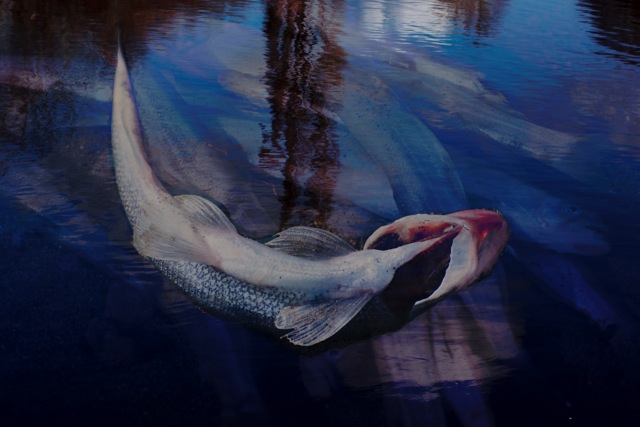Last week CBS news published an alarming article predicting that by 2048 salt water fish might be extinct. Just the kind of news you glance at and decide an already bleak view of the future has become even more dire on a sunny Monday morning.

Independent of our own delight in seafood, millions of people in the developing world depend on fish as protein source and for their livelihoods. Never mind what’s at issue for the larger food chain depending on healthy oceans.

Here’s the problem: it is a story that has perennially surfaced in the news since 2006 when the study it relies on was first published. Never mind that the scientific authors fundamentally revised their findings in 2009 because the study was relying on seriously flawed data and statistics.
You might argue that the criticism comes from the seafood industry and their own data are equally sketchy, driven by the desire to maintain the economic gains from fishing. But it is not an isolated case.

Three years ago there was much discussion of reports by the MacArthur Foundation and the World Economic Forum that by 2050 there will be more plastic than fish in the sea if we continue dumping plastic in the oceans at the present rate, measured by weight. Note that this claim rests on our ability to accurately measure the plastic and count the fish. Are we able to do that?

Their report certainly didn’t. It relied on plastic estimates derived solely from San Francisco Bay and assumed that was representative for the rest of the globe. The report never stated figures for the expected tonnage of fish in 2050, and cited no research into fish populations. When reporters went back and asked about this issue they were referred to a 2008 study which was refuted by its own author in 2015. (For details go here.)

The problem with these types of misinformation rests with the fact that it gives power to those who want to deny that our oceans are in trouble. Or, more egregiously, want to claim that science can’t be trusted in general. Generally solid reports like this one are then thrown out together with the unreliable ones, in the interest of delaying action and preserving current income.

The WWF report lists the main reasons for decline of fish stocks in our oceans. Overfishing and by-catch are due to illegal fishing and insane subsidies for the fishing industries. As a result we have degraded eco systems and decreased food security. Action is required to create areas protected from fishing and to stop the industrial subsidies that are incentives for expanding fishing fleets.

I leave it to you to judge if clips like this, earnestness notwithstanding, help the cause…..

There is, however, also good news, as reported in the Seattle Times this March (somehow the link is broken, but here is the upshot:)
The National Oceanic and Atmospheric Administration (NOAA) is investigating whether new fishing restrictions are needed to help prevent the extinction of endangered southern resident killer whales that frequent Puget Sound. That process is intended to result in fishing that lessens the impact on prey targeted by the whales. Possibilities include restrictions in time and places when fishermen and whales most intersect, or season closures. And not only in the ocean: NOAA is also evaluating fishing in Puget Sound and southeast Alaska to reduce impacts on orcas. The agency already, through the Pacific Salmon Treaty, worked to cut back harvest rates on salmon in Canadian fisheries.



Photographs today are from Puget Sound where I had thrilling views of whales some years back.
Music is a mesmerizing piece by Adams Becoming Ocean that somehow manages to communicate the urgency of required action. Music starts in at 7:35 or thereabouts.






